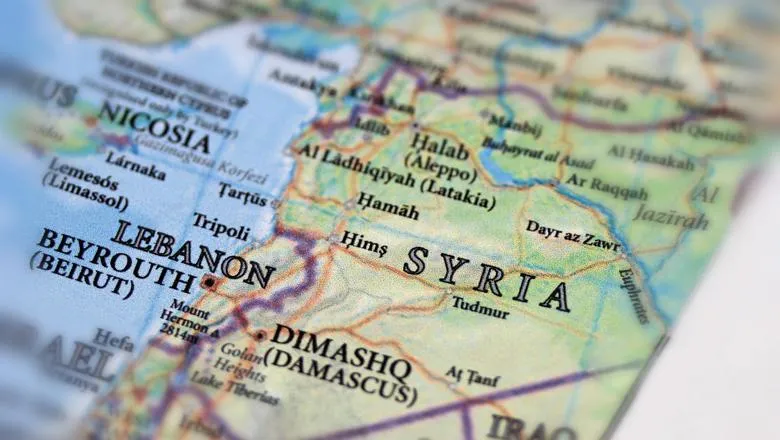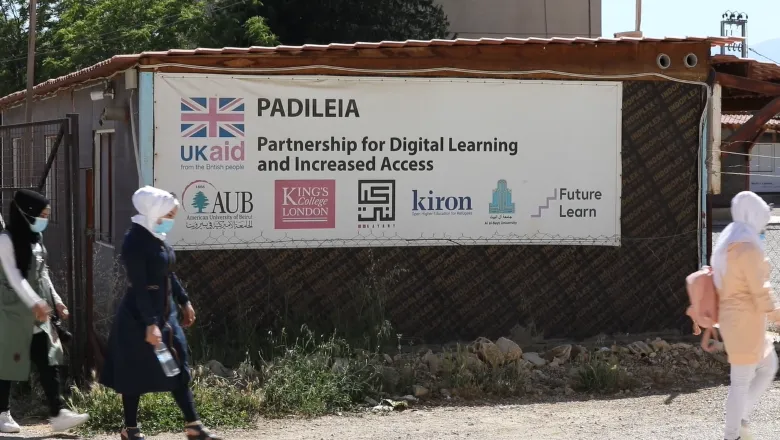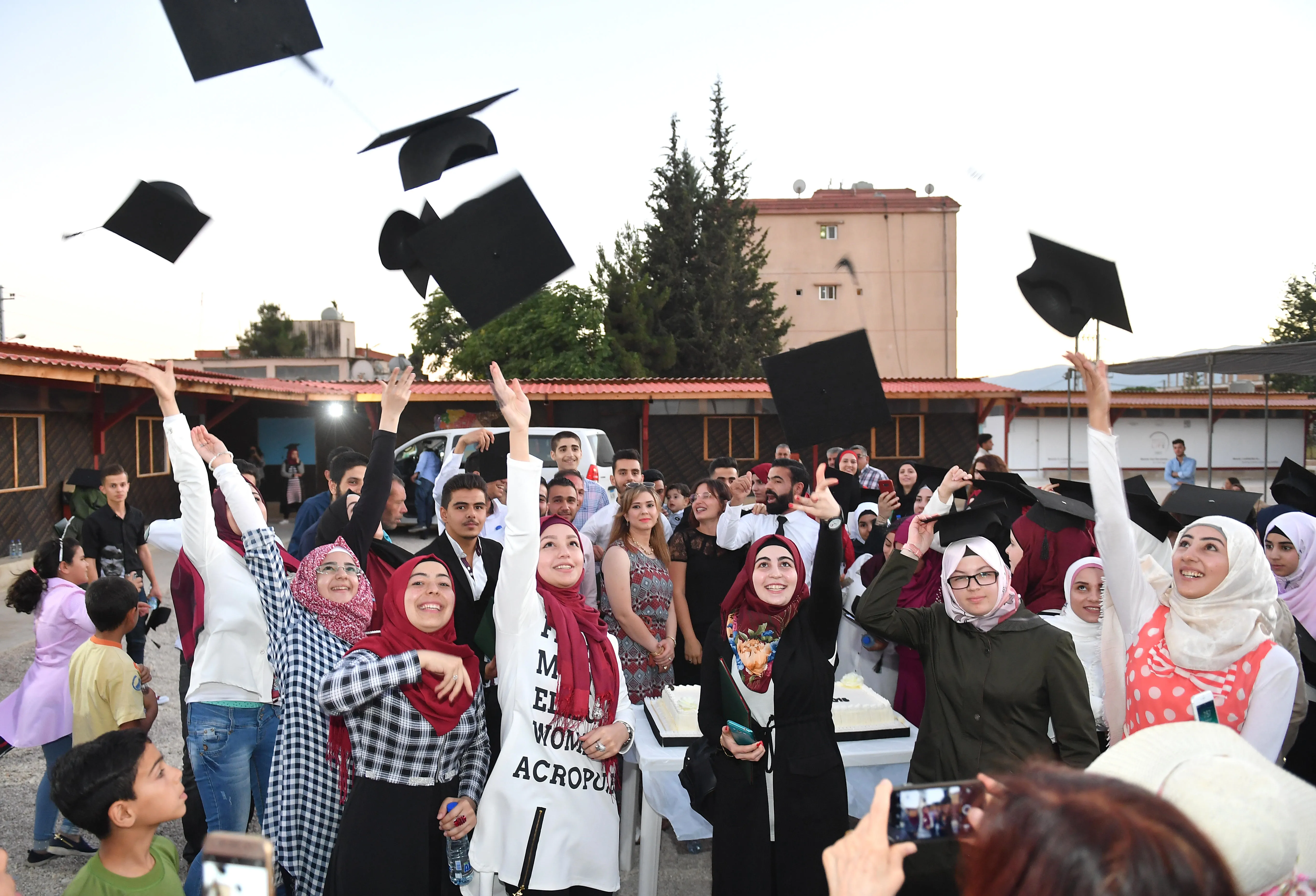I am calling for the development of a national policy for higher education for Syrian refugees in Lebanon. It is only by thinking long-term about their needs, and including them in the discussions, that we can give them a real chance to access university and live the life they want and deserve.
Melissa Matar, PhD researcher in the School of Education, Communication & Society
20 June 2023
Researcher provides platform for refugees to influence higher education policy
Young Syrian refugees are being invited to have their say and influence higher education policy in Lebanon as part of a study led by a King’s PhD candidate, whose research is inspired by the university’s PADILEIA project.

Melissa Matar, a Lebanese PhD candidate in the School of Education, Communication & Society, is conducting a research project with Syrian refugee youths based in the Beqaa Valley, a remote area in Lebanon near the Syrian border, where access to higher education is limited.
Since 2011, more than 13 million Syrians have been forced to flee their homes and seek sanctuary within their country’s borders or as refugees in Lebanon, Jordan, Turkey and beyond. These neighbouring host countries are under significant financial pressure, which has been worsened by the impact of the COVID-19 pandemic.
As a result, the majority of young Syrian refugees in Lebanon face significant barriers to accessing higher education opportunities.
To bridge the gap between the policymakers and the refugees who are impacted most, Melissa is inviting young Syrian refugees to become ‘co-researchers’ on her project, providing a platform where they can share their views, contribute to a list of recommendations, and have open dialogue with influential policymakers – including the United Nations High Commissioner for Refugees, UNESCO, the World Bank, the Lebanese Ministry of Education, and the Lebanese Ministry of Social Affairs.
Melissa’s aim is to give young Syrian refugees their voices back, so that they can be heard by education policymakers in Lebanon.
Melissa was inspired to do her PhD at King’s after witnessing first-hand the importance of facilitating access to higher education for refugees when she worked in the Centre for Civic Engagement and Community Service at the American University of Beirut, where she managed the Partnership for Digital Learning and Increased Access (PADILEIA) project.
PADILEIA – an innovative partnership between King’s, Al Al-Bayt University in Jordan, the American University of Beirut in Lebanon, Kiron Open Higher Education (a digital-education NGO) and FutureLearn (a leader in online learning) – was established to facilitate access to higher education through online and blended learning modules that met the educational needs of refugees affected by the Syrian war and disadvantaged local youth in Jordan and Lebanon.
King’s played a pivotal role in developing eight online bespoke PADILEIA courses, including English Elementary, English Intermediate, English for Healthcare, Introduction to Nursing, Business, Entrepreneurship, Digital Skills and Engineering. More than 13,000 self-identifying refugees and disadvantaged young people participated in one of these courses.
The innovative venture gave the local partners a key role in the designing of the programme and its delivery. While the bespoke courses were initially conceived to be delivered completely online, the local partners pushed for a blended approach instead, whereby trained facilitators could support the students to go through the digital learning experience in custom-built ‘study hubs’.

Melissa said: “While the focus of emergency responses is always on primary and informal education, PADILEIA was ground-breaking in giving young people a chance to continue their higher education studies – which is just as critical to help them change their refugee situation.”
As a recipient of the LISS DTP (London Interdisciplinary Social Science Doctoral Training Partnership) scholarship, Melissa conducted field research in Lebanon for her Master’s dissertation in 2022. She found that the question of higher education for refugees is made more complex by the opposing political stances taken by the ministries and international organisations on the Syrian crisis.
“The political environment can dramatically influence how different stakeholders approach higher education for refugees, in emergency settings and in international development contexts,” she added.
“Working closely with King’s in the PADILEIA project made me realise that change can only happen through an equitable partnership between international and local stakeholders, more specifically between universities, who have the capacity to produce and co-produce research that informs and influences policymaking in refugee education, a field that is becoming increasingly important in protracted crisis."

